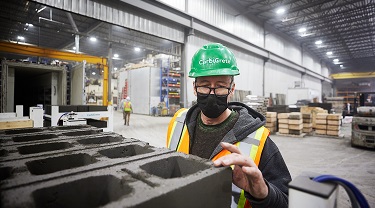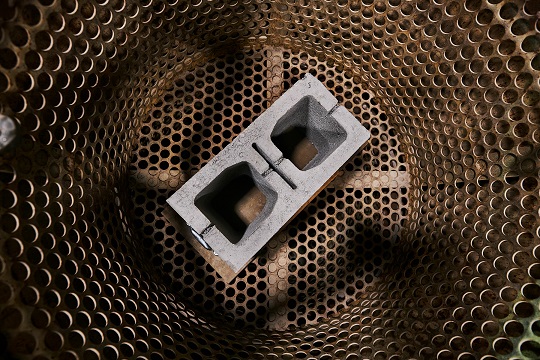

MyEDC account
Manage your finance and insurance services. Get access to export tools and expert insights.
Solutions
By product
By product
By product
By product
Insurance
Get short-term coverage for occasional exports
Maintain ongoing coverage for active exporters

Learn how credit insurance safeguards your business and opens doors to new markets.

See how portfolio credit insurance helped this Canadian innovator expand.
Guarantees
Increase borrowing power for exports
Free up cash tied to contracts
Protect profits from exchange risk
Unlock more working capital

Find out how access to working capital fueled their expansion.
Loans
Secure a loan for global expansion
Get financing for international customers
Access funding for capital-intensive projects

Find out how direct lending helped this snack brand go global.

Learn how a Canadian tech firm turns sustainability into global opportunity.
Investments
Get equity capital for strategic growth

Explore how GoBolt built a greener logistics network across borders.
By industry
Featured

See how Canadian cleantech firms are advancing global sustainability goals.

Build relationships with global buyers to help grow your international business.
Resources
Popular topics
Explore strategies to enter new markets
Understand trade tariffs and how to manage their impact
Learn ways to protect your business from uncertainty
Build stronger supply chains for reliable operation
Access tools and insights for agri-food exporters
Find market intelligence for mining and metals exporters
Get insights to drive sustainable innovation
Explore resources for infrastructure growth
Export stage
Discover practical tools for first-time exporters
Unlock strategies to manage risk and boost growth
Leverage insights and connections to scale worldwide

Learn how pricing strategies help you enter new markets, manage risk and attract customers.

Get expert insights and the latest economic trends to help guide your export strategy.
Trade intelligence
Track trade trends in Indo-Pacific
Uncover European market opportunities
Access insights on U.S. trade
Browse countries and markets
Get expert analysis on markets and trends
Discover stories shaping global trade
See what’s ahead for the world economy
Monitor shifting global market risks
Read exporters’ perspectives on global trade
Knowledge centre
Get answers to your export questions
Research foreign companies before doing business
Find trusted freight forwarders
Gain export skills with online courses
Discover resources for smarter exporting
Get insights and practical advice from leading experts
Listen to global trade stories
Learn how exporters are thriving worldwide
Explore export challenges and EDC solutions
About
Discover our story
See how we help exporters
Explore the companies we serve
Learn about our commitment to ESG
Understand our governance framework
See the results of our commitments
MyEDC account
Manage your finance and insurance services. Get access to export tools and expert insights.

Senior international trade editor
It’s the most used substance on the planet after water, but many people don’t realize that the cement in concrete is bad for the environment, says Chris Stern of CarbiCrete, this year’s winner of Export Development Canada’s Cleantech Pitch Competition.
As the biggest industrial carbon pollutant, cement “is responsible for 8% of global greenhouse gas (GHG) emissions,” says Stern, founder and CEO of the Montreal-based tech firm, which is ranked among the fastest-growing sustainable companies in Canada.
During EDC’s recent Cleantech Export Week, CarbiCrete was one of five “best of the best” Canadian companies invited to take part in the third annual competition on Oct. 26.
“It’s an opportunity to showcase up-and-coming companies in the cleantech industry and how their solutions are helping in the fight against climate change,” says Lynn Côté, national lead of EDC’s Cleantech team and the moderator for the 2022 virtual event.
“CarbiCrete was chosen because their technology is making a strong environmental impact,” says Côté, adding that the winning pitch was determined by a panel of six judges and an audience poll.
Founded in 2016, Carbicrete’s patented technology enables the manufacturing of cement-free, carbon-negative concrete. Instead of cement, steel slag—industrial waste that’s readily available from steel factories—is used as the binding ingredient in precast concrete products.
The mix is then formed into standard construction blocks and cured for 24 hours in specialized absorption chambers which are injected with carbon dioxide (C02). The C02 reacts with the slag in the fresh concrete and is captured and converted into calcium carbonates to give the concrete its rock-hard strength.

The curing of regular concrete typically takes 28 days—CarbiCrete’s process is 97% faster. As an added benefit, the technology can be retrofitted into existing factories.
“Concrete manufacturers don’t have to build a new factory—they just have to change their curing system,” says Stern, who worked in the solar power industry before starting CarbiCrete.
And as he told the judges during his five-minute pitch session, his company’s carbon-negative technology offers many advantages that are better for the environment:
“It’s a no-brainer,” says Stern, who is focused on expanding his company into France, India and the United Kingdom.
A pilot project has also been commissioned at a large facility in Drummondville, QC with an end goal of producing 25,000 blocks per day. CarbiCrete’s target is to produce one gigatonne of carbon-negative concrete by 2030.
“Carbon removal is a permanent solution. We’re not storing it in the ground and hoping for the best. We’re getting rid of it,” Stern says.


From cutting-edge technologies and environmental solutions, five companies were awarded top honours.

Canada is a global leader in clean technology and these five companies are why.